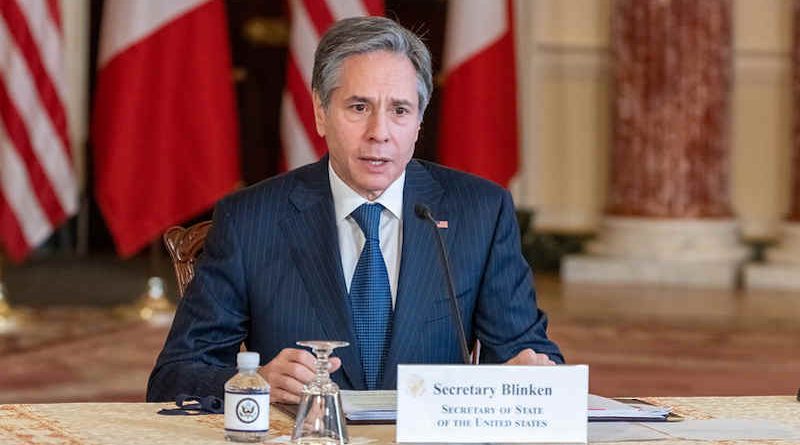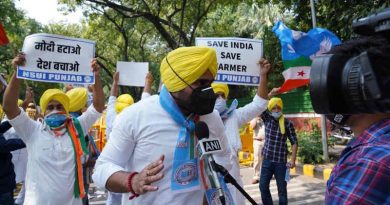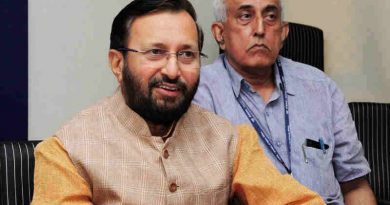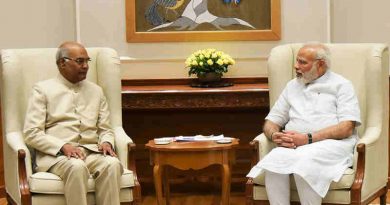Dishonest U.S. Leaders Ignore Corruption and Human Rights Abuses in India
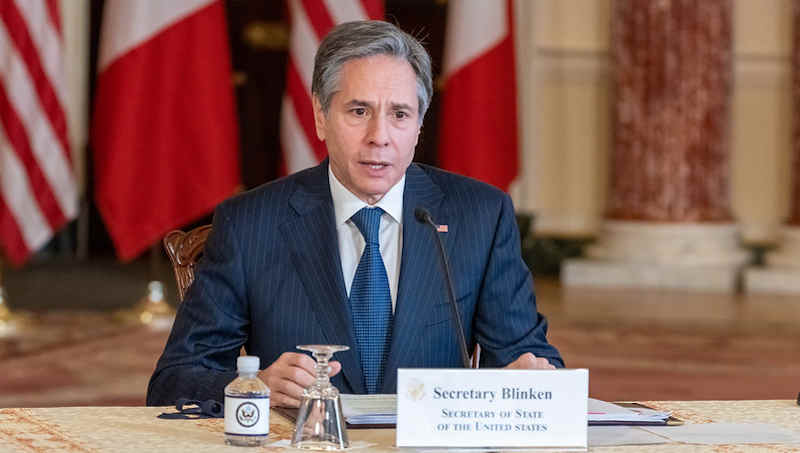
Dishonest U.S. Leaders Ignore Corruption and Human Rights Abuses in India
While the U.S. State Department officials have not given a proper response to my specific queries, I urge them again to take legal action against the autocratic Indian authorities.
By Rakesh Raman
The U.S. leaders are dishonest. While they selectively criticize corruption and human rights violations in some countries, they ignore the same or worse crimes in India.
The U.S. – which is the self-styled promoter of democracy in the world – has been downplaying the demise of democracy in India. The U.S. leaders frequently hobnob with India’s prime minister Narendra Modi and his colleagues despite their regular criticism of Modi’s autocratic idiosyncrasies.
The U.S., in fact, exploits human rights abuses in India for its commercial interests, as the U.S. believes that India is a big market for its products and services. The modus operandi of the U.S. leaders is to subtly intimidate Modi with the accusations of corruption and human rights violations, and then force him to buy American products or services worth billions of dollars.
In order to take the U.S. administration’s response on why it ignores corruption and human rights abuses in India, I sent the following questionnaire to the U.S. Department of State on March 18, 2023.
Although I had requested the State Department to give a specific response, as expected it gave me a totally ambiguous reply on March 20. It shows that because of its selfish interests, the U.S. administration ignores state crimes in India.
My Questionnaire Sent to the U.S. Department of State
While there are multiple global reports of extreme corruption and human rights violations in India including Kashmir, what action does the U.S. plan to take against Indian rulers? Is the U.S. driven by its commercial interests that it ignores grand corruption and human rights abuses in India?
Why can’t the U.S. use laws such as the Global Magnitsky Human Rights Accountability Act against Indian rulers, as the Act targets perpetrators of serious human rights abuse and corruption around the world?
In this context, please also refer to H.Res.1196 — 117th Congress (2021-2022) introduced in the House (06/21/2022). Submitted by Rep. Omar, Ilhan [D-MN-5] (for herself, Mr. McGovern, Ms. Tlaib, and Mr. Vargas), the resolution condemns human rights violations and violations of international religious freedom in India, including those targeting Muslims, Christians, Sikhs, Dalits, Adivasis, and other religious and cultural minorities. Why is the decision on this resolution being delayed?
Note: Please do not give a standard response that the U.S. shares democratic values, etc. with India. Rather, give a specific response to the above query.
Thank You
Rakesh Raman
March 18, 2023
Evasive Reply Sent to Me by the U.S. Department of State
Rakesh,
We refer you to the following excerpt from the Monday, March 20 briefing linked below.
Acting Assistant Secretary for Democracy, Human Rights, and Labor Erin Barclay on the 2022 Country Reports on Human Rights Practices
https://www.state.gov/acting-assistant-secretary-for-democracy-human-rights-and-labor-erin-barclay-on-the-2022-country-reports-on-human-rights-practices/
QUESTION: Thank you so much. Human rights advocates have raised concerns about treatment of dissidents and minorities in India. Human Rights Watch in 2019 said the Indian Government’s policies targeted minorities.
The Indian Government recently banned a BBC documentary and then raided the BBC’s offices, and India is ranked 150th in the press freedom index.
Blinken has raised concerns about the rise of rights abuses in India last year without going into specific incidents. Are you concerned by India’s treatment of minorities and dissidents and by the state of press freedom in the country? And have you raised these concerns directly with Indian counterparts?
MS BARCLAY: Thank you very much for the question. As the Secretary said, we raise the difficult issues in all of our conversations with our partners. The U.S. and India regularly consult at the highest levels on democracy and human rights issues. We have and we will continue to strongly urge India to uphold its human rights obligations and commitments.
Not surprisingly, we also regularly meet with civil society both in the U.S. and in India to hear their perspectives and learn from their experiences, and we encourage the Government of India to consult with them as well.
On the BBC issue, we’re of course aware of the BBC issues and we will continue to support free press around the world and have communicated the same.
While the U.S. State Department officials have not given a proper response to my specific queries, I urge them again to take legal action against the autocratic Indian authorities which are committing acts of corruption and human rights abuses blatantly.
Meanwhile, in its report released on March 20, 2023, the U.S. Department of State has accused India of extreme human rights violations and rampant corruption. According to the report, the state crimes happening in India include unlawful and arbitrary killings, including extrajudicial killings by the government or its agents; harsh and life-threatening prison conditions; arbitrary arrest and detention, arbitrary or unlawful interference with privacy; restrictions on freedom of expression and media, and serious government corruption.
Surprisingly, however, the U.S. which promises to punish corruption and human rights violations in all parts of the world with the aim to protect democratic systems is not taking any punitive action against the autocratic Indian regime.
By Rakesh Raman, who is a national award-winning journalist and social activist. He is the founder of the humanitarian organization RMN Foundation which is working in diverse areas to help the disadvantaged and distressed people in the society.
He has also been publishing The Integrity Bulletin news magazine since 2018 to cover local and international corruption issues to engage with different stakeholders who are trying to combat corruption in the world.

